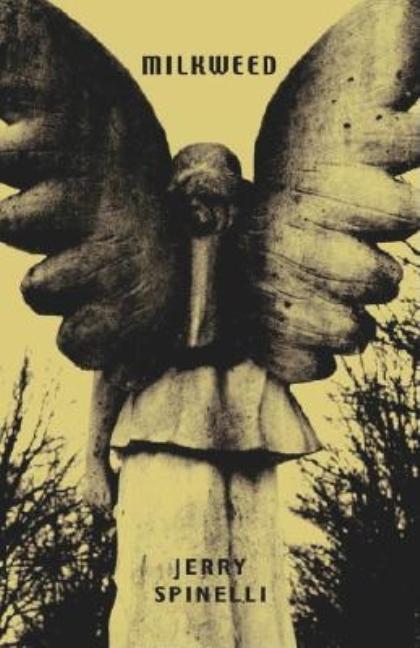Book Description
for Milkweed by Jerry Spinelli
From Cooperative Children's Book Center (CCBC)
A stirring, first-person narrative set during the Holocaust reveals how a child’s sense of the world is shaped—and skewed—by his experiences. The young narrator’s first memory is of running, a loaf of bread clutched under his arm. He’s running again as the story opens. “What is your name?” asks Uri, an older teen who snatches the boy from the clutches of angry pursuers. “Stopthief,” the boy replies. He doesn’t know how old he is. He has no memory of a family. Uri makes up a past for him: he is a young Gypsy boy named Misha Pilsudski, whose parents died when the Jackboots bombed their wagons. The boy can see every detail of Uri’s story in his mind. He eagerly embraces it as truth, although without the sense of loss that would linger were the memory real. Indeed, the boy has no sense of despair or hope, nor of right and wrong. Life is only about doing what is required for survival. Jerry Spinelli’s brilliant positioning of the narrator in relation to the action means the boy bears witness to the despair and inhumanity around him, as well as community and compassion, without ever understanding or labeling what he is seeing. Spinelli stays firmly grounded in the young boy’s unique and affecting point of view, using vivid descriptions of what is happening that are all the more jarring by the disconnect between the narrator’s response and the response evoked in the reader. As an example, the boy admires the Germans with their big shiny jackboots, only changing his opinion when he is the personal victim of their cruelty, first on the streets of the city, and later in the Warsaw ghetto, where he has made friends with a young Jewish girl. In the novel’s concluding chapters, there is a sudden, disconcerting shift in tone. “The world returned to normal, but for me there was no normal to return to,” says the narrator, who has now grown to adulthood, and now deeply feels a sense of displacement and loss. But he is a survivor. In that there is hope. He also offers testament to individual lives that were lost, because now he is the bearer of memories. Winner, CCBC Newbery Award Discussion (Ages 12–15)
CCBC Choices 2004 . © Cooperative Children's Book Center, Univ. of Wisconsin - Madison, 2004. Used with permission.


